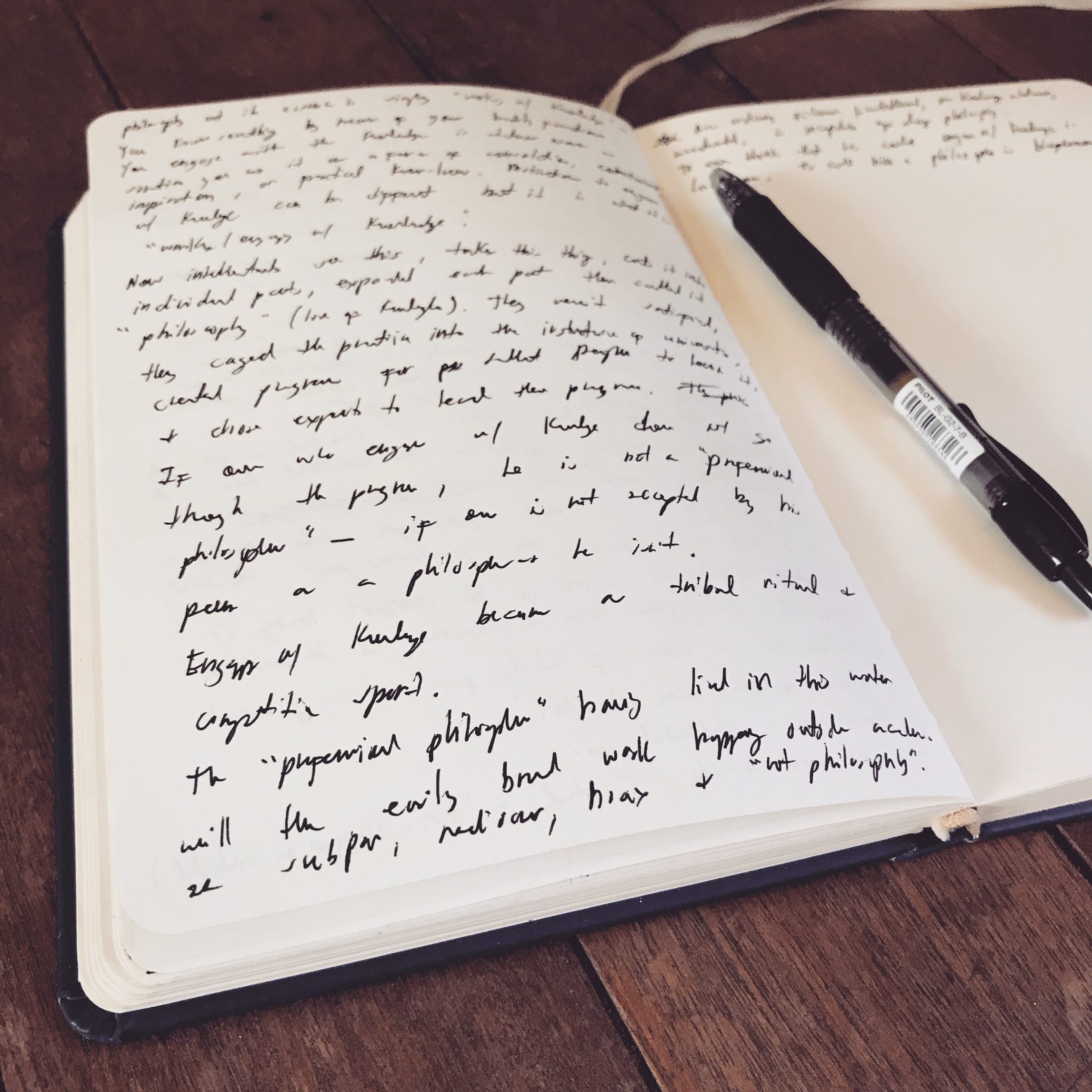
There are two ways that people approach creativity, either consciously or unconsciously:
- Creativity as a celebrity game
- Creativity as an authenticity game
Neither is right or wrong. People who look at creativity through each lens are looking at it the right way. However, we have a cultural bias that favors the first option.
For example:
- If you are a writer you need to get published.
- You need to win an award.
- People need to know about you. You have to live in public.
- You need to have x number of followers.
- You need to earn x number of income from royalties, etc.
Again there is absolutely nothing wrong with all these goals. But we have to recognize that there exists a cultural bias over these goals, which have not always resulted in good things.
Some examples:
- The majority of people expect creatives to have a following. If they don’t have one, they’re just “hobbyists”, which is synonymous with being amateurs.
- Because society expects artists to have a following, many who have a creative itch are frightened by the prospect of engaging in the creative process.
- People leave their creative endeavors after burning out from trying so hard to “make it”.
- Many creatives sacrifice other important areas of their lives for the sake of “success”. What’s sadder about this is that society actually celebrates people who sacrifice everything just to be “great”.
- Society distinguishes between good art (“high art) and bad art (doodles, punk art, and the like) raising the barrier to entry for creative pursuits in certain circles too high for most people.
- Creativity is institutionalized and pigeonholed into hierarchies.
- The creative marketplace has transformed into a dog-eat-dog environment where you either make it or you die (sometimes, literally).
The Celebrity Game
Much of society’s ideas of creativity and art revolve around the celebrity game. However, if you are an artist and you play the celebrity game, you have to face some hard facts:
- People’s attention has become more and more scarce over the years, thanks to the Internet and social media, which made the barrier to entry to content creation so low.
- Winning the celebrity game almost always requires you to compete. You have no choice about this.
- In specific instances, you can make it by playing the authenticity game but we shouldn’t forget the role of “luck” in these instances. Making it in the creative world just by being authentic is not the norm (for more on this, see the work of Nassim Nicholas Taleb).
The Authenticity Game
The alternative of the celebrity game is of course the authenticity game. What is the authenticity game?
- Aspire for authenticity first.
- Aspire for doing what feels good.
- Stop treating your art as the be-all and end-all of your life.
- Prepare for mild success (i.e., doing your best work based on your own standards, not that the standards of other people, and training yourself to be ready when “luck” works for you and you get a big break).
- When a celebrity opportunity arrives, remember to reflect on the cons, not just the pros.
The Benefits of Obscurity
There are some benefits of obscurity. Austin Kleon said in Steal Like an Artist:
Soon after, you learn that most of the world doesn’t necessarily care about what you think. It sounds harsh, but it’s true. As the writer Steven Pressfield says, “It’s not that people are mean or cruel, they’re just busy.
This is actually a good thing, because you want attention only after you’re doing really good work. There’s no pressure when you’re unknown. You can do what you want. Experiment. Do things just for the fun of it. When you’re unknown, there’s nothing to distract you from getting better. No public image to manage. No huge paycheck on the line. No stockholders. No e-mails from your agent. No hangers-on.
You’ll never get that freedom back again once people start paying you attention, and especially not once they start paying you money.
Enjoy your obscurity while it lasts. Use it.
This is where I admire henry david thoreau so much. Yes, he was able to make a name for himself while he was alive, but he was never a big hit like J.K. Rowling was or similar big names in literature. Even when he started gaining traction in writing books and lecturing, he always recognized the tension between fame and his desire to be authentic in the work that he does.
For example, he stopped giving lecture tours when he noticed that they took away the time he spends in nature and when he noticed that his audience were just looking for formulaic presentations that forced him to be inauthentic just to please them. Furthermore, his journal was done in private and was never really meant to bring him fame. And yet he viewed it as his most important work.
I’m sure there are other examples of artists who played the authenticity game rather than the celebrity game game.